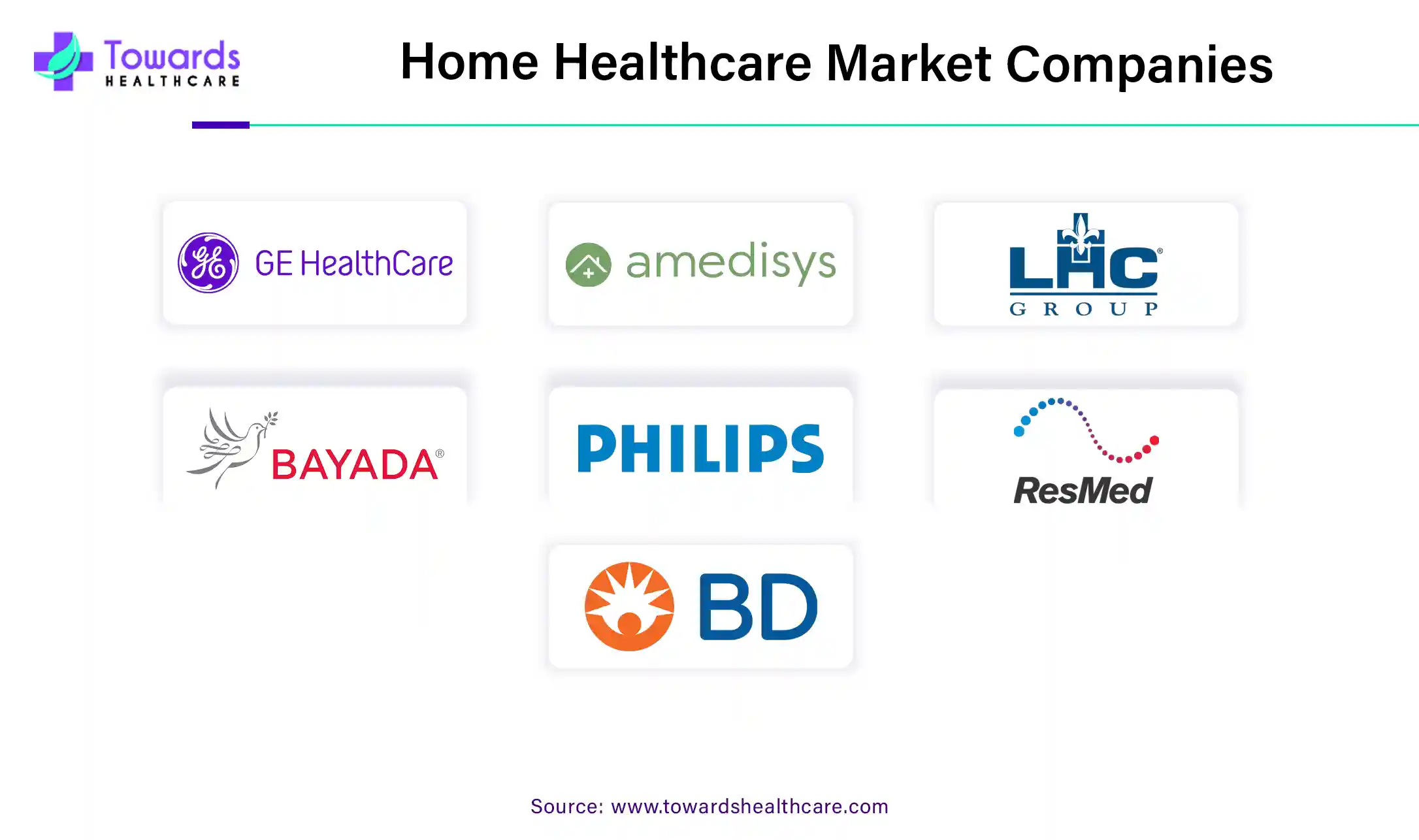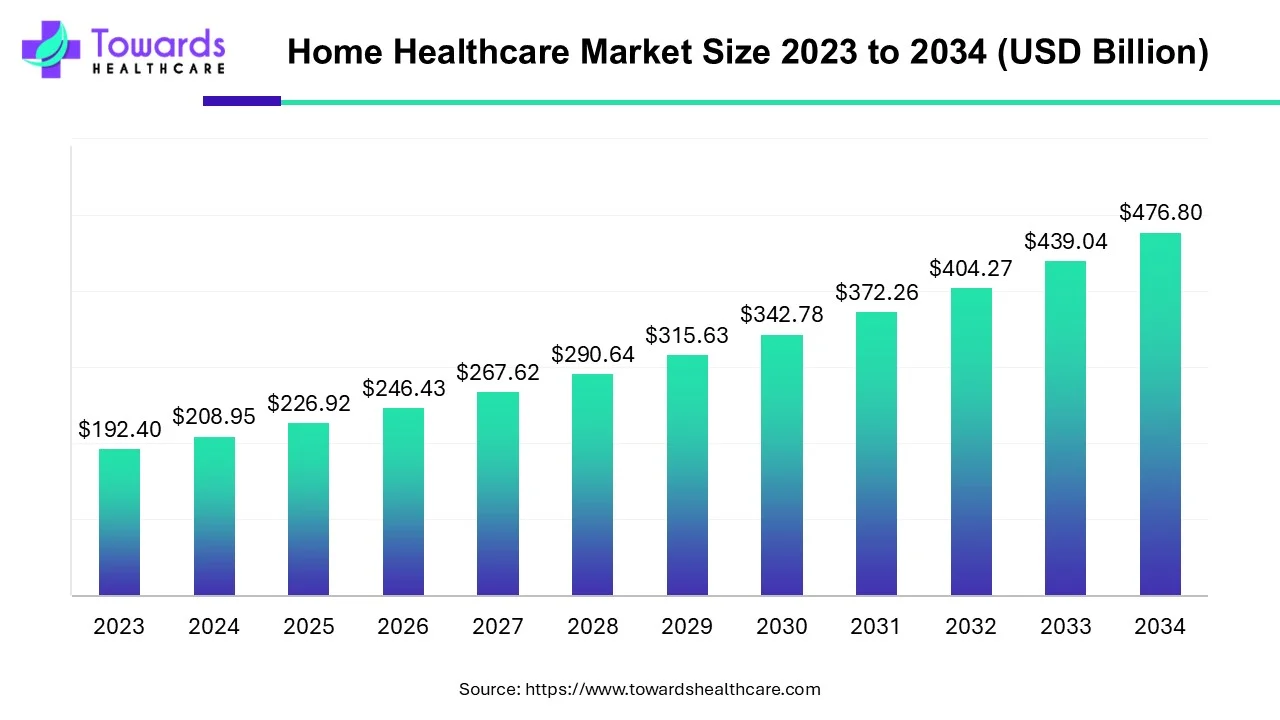

Home healthcare is a service where healthcare professionals, like nurses and therapists, bring medical assistance and support directly to your home. This includes various services such as nursing care, physical therapy, and help with everyday activities like bathing or getting dressed. The critical concept is offering medical care for people who need it but would rather stay home than go to a hospital or clinic. This type of care is beneficial for different situations. It could be for people recovering from an illness, managing long-term health conditions, or individuals needing extra help. Home healthcare allows individuals to receive necessary medical attention while staying in a familiar and comfortable environment.
The home healthcare market has been growing for a few reasons. As the population ages, there is an increased demand for healthcare services. Older adults often prefer to age in place, and home healthcare supports that choice. Second, technological advancements and medical practices make it feasible to deliver complex healthcare services in a home setting. This includes using telemedicine for remote consultations and monitoring devices to keep track of health metrics. Additionally, the COVID-19 pandemic has accelerated the adoption of home healthcare. The desire to minimize exposure to crowded places has led more people to opt for home-based care. This has increased the demand for home healthcare services and prompted advancements in technology to make remote healthcare delivery more effective.
According to the CDC, about 12.1% of adults in the U.S. face difficulty walking or climbing stairs due to mobility-related disabilities. These disorders, affecting movement due to physical, psychological, or neurological issues, may be treated with physical therapy, assistive tools, and medications. Home healthcare services offer valuable support to individuals with mobility challenges, aiding with daily tasks to maintain independence. Physiotherapists in home healthcare help people regain mobility, functionality, and strength while reducing pain through exercises, movements, and massages. The increasing prevalence of mobility disorders drives the expected growth of this segment.
Home healthcare is a convenient and personalized way to receive necessary medical care in the comfort of one's home. The growing aging population, technological advancements, and the changing landscape of healthcare delivery have contributed to the increasing popularity and expansion of the home healthcare market.
The home healthcare market is projected to reach USD 476.80 billion by 2034, expanding from USD 226.92 billion in 2025, at an annual growth rate of 8.6% during the forecast period from 2025 to 2034.

In January 2025, by securing $105 million, the Series C funding round, securing $105 million, had been closed by Geneoscopy Inc. Thus, the launch and commercialization of ColoSense, which is an at-home, stool-based colorectal cancer screening test of Geneoscopy, will be supported by this funding and help it to achieve new milestones.
In November 2024, an investment in General Prognostics Inc. (GPx), which is a rapidly growing MedTech startup revolutionizing chronic disease monitoring and management, was announced by NEC X.
The competitive landscape of home healthcare is evolving with the participation of various players, including traditional healthcare providers, technology companies, and startups. Companies manufacturing medical devices and equipment used in home healthcare, such as home infusion pumps, respiratory devices, and monitoring devices, were key players. These companies often collaborated with healthcare providers to ensure the effective use of their devices in home settings. Pharmaceutical companies were involved in the home healthcare landscape by providing specialty medications, home infusion therapies, and patient support programs. These companies aimed to enhance medication adherence and provide comprehensive care for patients with chronic conditions.
In July 2025, after receiving FDA clearance for a wearable sensor that is a CardioTag device, which provides a non-invasive approach to monitor cardiac function, developed by Medical AI company Cardiosense, the company announced that it can capture seismocardiogram (SCG), high-fidelity electrocardiogram (ECG), and photoplethysmogram (PPG) signals simultaneously, making it the first multimodal, wearable sensor. Moreover, with the FDA clearance, the use of CardioTag for the non-invasive measurement of PPG, SCG, and ECG signals, along with pulse rate and heart rate, will be authorized.
Partner with our experts to explore the Home Healthcare Market at sales@towardshealthcare.com